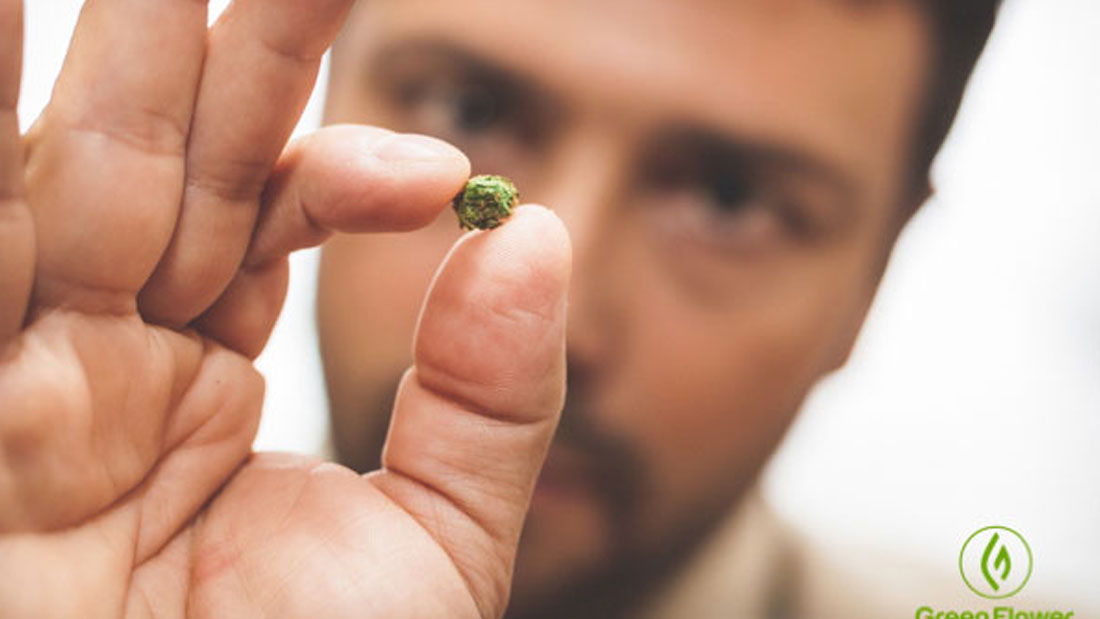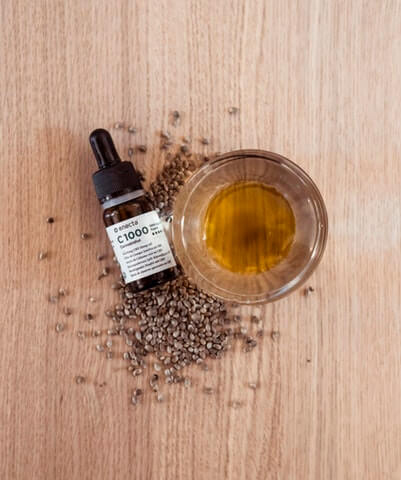Personalized Medicine
Cannabis therapeutics is personalized medicine. The right treatment regimen depends on the person and condition being treated. For maximum therapeutic benefit, choose cannabis products that include both cannabidiol (CBD), a non-intoxicating compound, and tetrahydrocannabinol (THC), the psychoactive component of cannabis. CBD and THC interact to enhance each other’s therapeutic effects. They work best together. A patient’s sensitivity to THC is a key factor to determining the ratio and dosage of CBD-rich medicine. Many people enjoy the cannabis high and can consume reasonable doses of any cannabis product without feeling too high or dysphoric. Others find THC unpleasant. CBD can lessen or neutralize the intoxicating effects of THC. So a greater ratio of CBD-to-THC means less of a “high.”
Finding your ratio is the first step to effective treatment.
Find Your Ratio!
Although banned by federal law, dosed cannabis medicine is currently available in the form of concentrated oil extracts, infused sublingual sprays, capsules, edibles, and other products. Potent cannabis oil extracts have varying ratios of CBD and THC that are calibrated to suit the needs and sensitivities of each patient.
For anxiety, depression, spasms, and pediatric seizure disorders, many patients initially find they do best with a moderate dose of a CBD-dominant remedy (a CBD:THC ratio of more than 10:1). But a low THC remedy, while not intoxicating, is not necessarily the best therapeutic option. A combination of CBD and THC will likely have a greater therapeutic effect for a wider range of conditions than CBD or THC alone. For cancer, neurological disease, and many other ailments, patients may benefit from a balanced ratio of CBD and THC. Extensive clinical research has shown that a 1:1 CBD:THC ratio is effective for neuropathic pain. Optimizing one’s therapeutic use of cannabis may entail a careful, step-by-step process, whereby a patient starts with small doses of a non-intoxicating CBD-rich remedy, observes the results, and gradually increases the amount of THC.
In essence, the goal is to self-administer consistent, measurable doses of a CBD-rich remedy that includes as much THC as a person is comfortable with.
The Biphasic Effect
Cannabis compounds have biphasic properties, which means that low and high doses of the same substance can produce opposite effects. Small doses of cannabis tend to stimulate; large doses sedate. Too much THC, while not lethal, can amplify anxiety and mood disorders. CBD has no known adverse side effects at any dose, but drug interactions can be problematic. An excessive amount of CBD could be less effective therapeutically than a moderate dose. “Less is more” is often the case with respect to cannabis therapy.
“Dosage is everything”—Paracelsus
Dosage Guidelines
- Decide how you want to take cannabis. Cannabis oil is available in sprays, capsules, edibles and other products.
- Find your ratio. Cannabis products have varying amounts of CBD and THC. A high CBD or high THC product is not necessarily superior to a strain with a balanced ratio. Find the proper combination to optimize your therapeutic use of cannabis.
- Begin with a low dose especially if you have little or no experience with cannabis.
- Take a few small doses over the course of the day rather than one big dose.
- Use the same dose and ratio for several days. Observe the effects and if necessary adjust the ratio or amount.
- Don’t overdo it. “Less is more” is often the case with cannabis therapeutics.
- Be aware of possible side effects. Cannabis is a safe and forgiving medicine. Depending upon delivery method and individual tolerance, it can amplify anxiety and mood disorders. Other possible side effects are dry mouth, dizziness and faintness.
- Consult your health counselor. Proceed cautiously, especially if you have a history of alcohol or drug abuse, mental illness, or are pregnant or breastfeeding.





